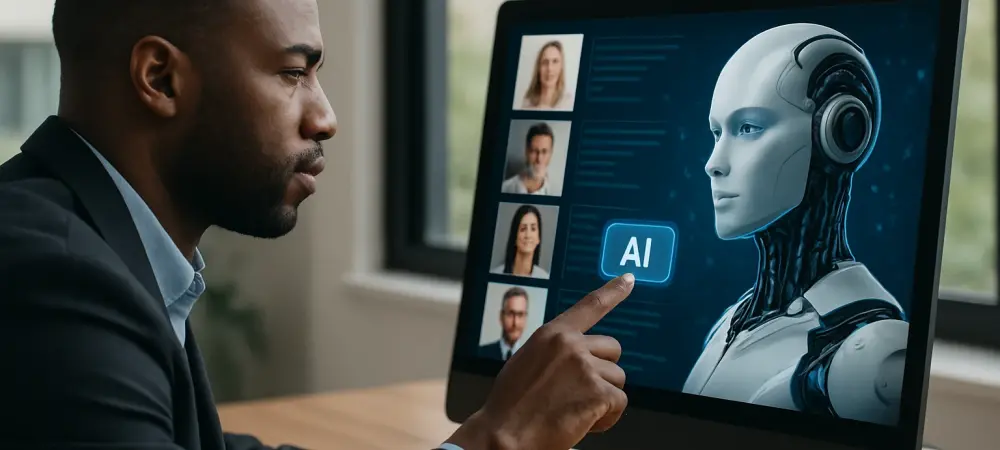We’re thrilled to sit down with Ling-Yi Tsai, a renowned HRTech expert with decades of experience helping organizations navigate transformative change through technology. Specializing in HR analytics and the seamless integration of tech into recruitment, onboarding, and talent management, Ling-Yi has a front-row seat to the AI revolution in hiring. In this interview, we dive into how AI is reshaping the daily work of recruiters, the ethical considerations of its implementation, and the critical role of leadership in driving adoption. We also explore the tangible benefits AI brings to talent acquisition and what the future might hold for this rapidly evolving field.
How has AI transformed the everyday responsibilities of recruiters in your experience?
AI has significantly altered the landscape for recruiters by taking over repetitive, time-intensive tasks like resume screening and drafting job postings. This shift allows recruiters to focus on more meaningful work, such as building relationships with candidates and collaborating with hiring managers. For instance, I’ve seen AI tools cut down the time spent on initial candidate outreach by automating personalized messages, freeing up hours for strategic planning and improving the overall candidate experience.
Can you share a specific example of a mundane task AI has streamlined for your team?
Absolutely. One task that comes to mind is the initial sorting of applications. In the past, recruiters would spend countless hours manually reviewing hundreds of resumes to identify potential fits. Now, AI-powered tools can analyze resumes against job criteria in minutes, flagging the most relevant candidates. This has not only saved time but also reduced human error in overlooking strong applicants buried in the pile.
What’s your perspective on the prediction that 72% of talent acquisition professionals believe AI will fundamentally change hiring practices?
I completely align with that prediction. AI is already disrupting traditional hiring models by introducing efficiency and scalability that we’ve never seen before. In my own work, I’ve witnessed how AI tools enhance everything from sourcing talent to predicting candidate success. It’s not just a trend; it’s a fundamental shift that’s redefining how we approach talent acquisition, making it more data-driven and candidate-focused.
What specific advancements in hiring do you anticipate AI will bring over the next few years?
I foresee AI becoming even more integrated into personalized candidate engagement and predictive analytics. For example, we’ll likely see smarter algorithms that not only match skills to roles but also predict cultural fit and long-term potential. Additionally, AI could expand access to diverse talent pools by identifying candidates from non-traditional backgrounds, breaking down barriers that have historically limited recruitment efforts.
Have you observed improvements in candidate engagement through AI-driven communication tools?
Yes, we’ve seen noticeable improvements. By using AI to craft tailored outreach messages, we’ve increased response rates significantly. Candidates appreciate communication that feels personal and relevant, and AI helps us achieve that at scale. It’s not just about sending more messages; it’s about sending the right message to the right person at the right time, which has made a big difference in building initial connections.
What benefits, beyond time savings, have you seen from incorporating AI into talent acquisition?
Beyond efficiency, AI has improved the quality of our hires and the overall candidate experience. For instance, by leveraging data analytics, we’re better at identifying candidates who are not just qualified but also aligned with our organizational values. Additionally, AI has broadened our talent pool by surfacing candidates we might have missed through traditional methods, such as those from underrepresented groups or unconventional career paths.
How do you ensure that AI is implemented ethically in your hiring processes?
Ethics is paramount when using AI in hiring. We adhere to principles like fairness, transparency, and accountability by regularly auditing our AI tools to check for bias in candidate selection. We also make it a point to inform candidates when AI is part of the process, ensuring transparency. It’s about building trust—both with candidates and within our team—so that technology supports human judgment rather than overrides it.
What strategies have you found effective in helping your team embrace AI tools, especially for those who might be resistant?
Getting team members on board with AI starts with creating a safe space for learning and experimentation. We’ve had success by identifying early adopters who can champion the technology and mentor others. Regular training sessions and open discussions about AI’s benefits and limitations help demystify it. It’s also crucial to show tangible results—like how much time a tool saves—so skeptics can see the value firsthand.
What is your forecast for the role of AI in talent acquisition over the next decade?
I believe AI will become an indispensable partner in talent acquisition, evolving from a tool for efficiency to a strategic advisor. We’ll likely see AI systems that not only handle logistics but also provide deep insights into workforce trends, employee retention, and skill gaps. My forecast is that organizations embracing AI with a human-centric approach will lead the way, creating hiring processes that are more equitable, predictive, and aligned with long-term business goals.

